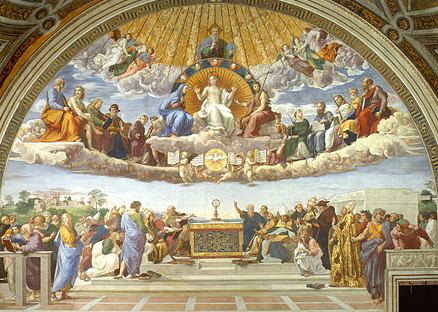In a rapidly changing and diverse global landscape, the question of what it means to be a Christian in today’s world holds profound significance. Christianity, with its rich history and diverse denominations, has always adapted to the times while maintaining its core beliefs. The 21st century presents unique challenges and opportunities, reshaping the way Christians perceive and practice their faith. From cultural shifts to technological advancements, the modern world calls for a reconsideration of Christian identity, values, and engagement.
Embracing Diversity and Inclusivity
One of the defining characteristics of today’s world is its diversity. People from various cultures, backgrounds, and belief systems interact more than ever before. For Christians, this poses a call to embrace diversity and practice inclusivity. The message of Christ’s love and acceptance becomes even more pertinent in a society marked by division and prejudice. Being Christian today means acknowledging the intrinsic worth of every individual, regardless of their differences. It involves fostering a community that welcomes and respects people from all walks of life, echoing Jesus’ example of dining with outcasts and showing compassion to the marginalized.
Ethical Stewardship of Technology
Technological advancements have revolutionized the way we live, communicate, and connect with the world. Being Christian in the digital age involves grappling with the ethical implications of these advancements. From social media interactions to artificial intelligence, Christians are called to use technology responsibly and in alignment with their faith values. This may mean cultivating a digital presence that reflects Christ-like virtues, promoting positive discourse, and being cautious of the addictive nature of certain technologies. It also involves addressing complex issues such as online privacy, the digital divide, and the impact of automation on employment and human dignity.
Social Justice and Advocacy
The 21st century has seen an increased awareness of systemic injustices and a growing desire to enact meaningful change. Many Christians find themselves drawn to social justice causes as a way to embody their faith. From combating poverty and inequality to advocating for environmental stewardship, being a Christian in today’s world often entails active engagement in addressing pressing global issues. The concept of “shalom,” meaning holistic well-being and justice, resonates strongly with this aspect of contemporary Christian identity. Just as Jesus overturned tables in the temple, today’s Christians are challenged to confront systems that perpetuate injustice and to be advocates for those without a voice.
Navigating Secularism and Pluralism
The secular nature of modern society, with its emphasis on individualism and skepticism, can create tension for Christians. Navigating this landscape requires a delicate balance between faith and cultural engagement. Being Christian in today’s world means having a solid understanding of one’s beliefs while engaging thoughtfully with differing worldviews. It involves open dialogue and respectful discourse with those who hold contrasting perspectives. Rather than retreating into isolation, Christians are encouraged to participate in various spheres of society, bringing their values and perspectives to the table.
Personal Faith in a Digital Age
The digital age has transformed how individuals engage with their faith. Information is readily accessible, and online communities provide spaces for theological discussions and spiritual growth. However, it also poses challenges such as spiritual superficiality and information overload. Being Christian today means navigating this digital landscape with discernment. It involves grounding one’s faith in genuine personal experiences rather than relying solely on virtual interactions. While online resources can enhance understanding, nurturing a deep, personal connection with God remains at the core of Christian identity.
Family and Relationships
The dynamics of family and relationships have evolved in the modern world. Changes in gender roles, marriage norms, and family structures have prompted Christians to reevaluate their beliefs and practices. Being Christian today involves holding onto biblical principles while interpreting them in light of contemporary contexts. Love, respect, and mutual support remain foundational values within families, but Christians must also grapple with how to approach issues such as divorce, LGBTQ+ inclusion, and single-parent households in ways that reflect Christ’s compassion and grace.
Hope and Resilience
Today’s world is marked by both incredible advancements and persistent challenges. From rapid technological progress to global crises, being Christian means embodying a spirit of hope and resilience. This hope is not rooted in naivety or ignorance of the world’s problems but in the belief that God’s redemptive work is ongoing. Christians are called to be beacons of hope in the face of despair, to offer support to those struggling, and to actively work towards a better future. This can manifest in initiatives that provide aid to disaster-stricken regions, programs that promote mental health awareness, and efforts to combat the effects of climate change.
Conclusion
In a world that is constantly evolving, the question of what it means to be Christian takes on new dimensions. Embracing diversity, engaging ethically with technology, advocating for social justice, navigating pluralism, nurturing personal faith, redefining family values, and embodying hope are all vital aspects of modern Christian identity. The teachings of Christ, timeless in their essence, find fresh relevance in today’s challenges and opportunities. Being a Christian in the 21st century involves a dynamic interplay between tradition and adaptation, offering a beacon of light and love in an ever-changing world.
